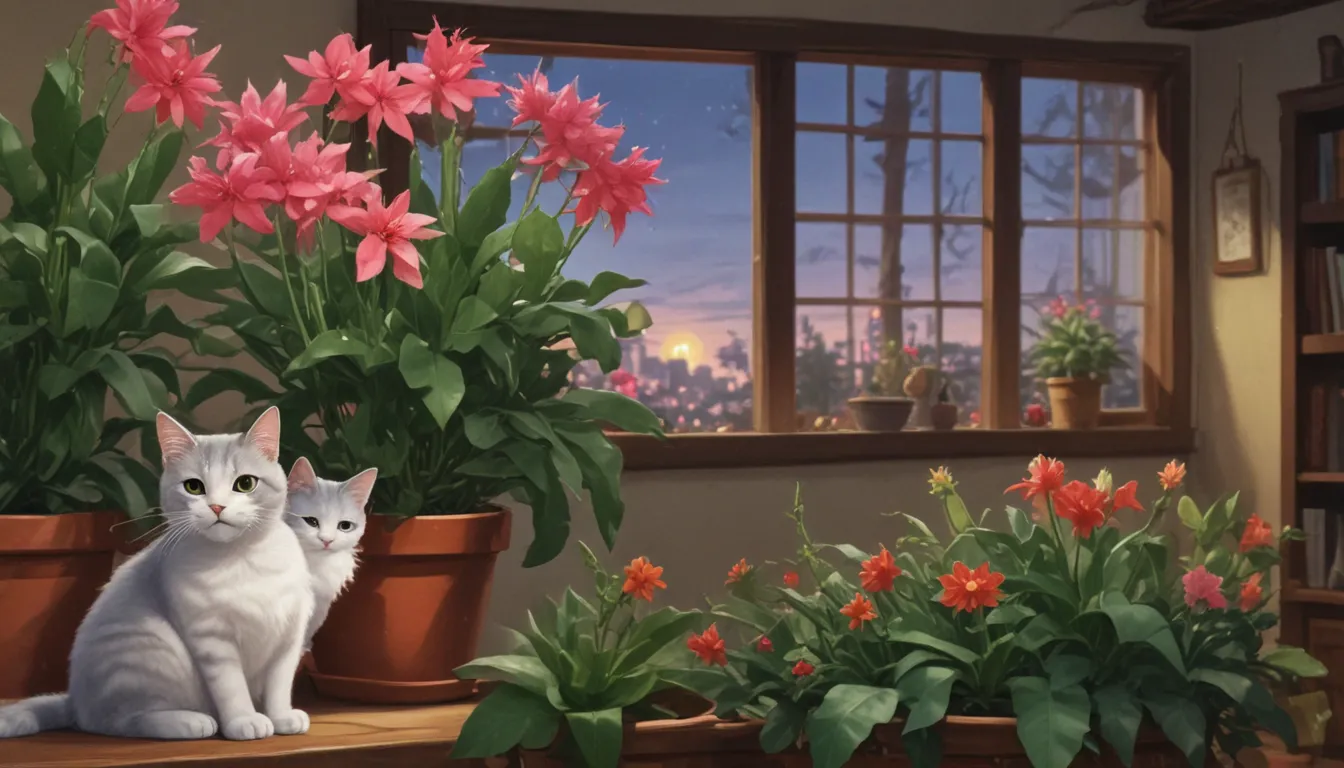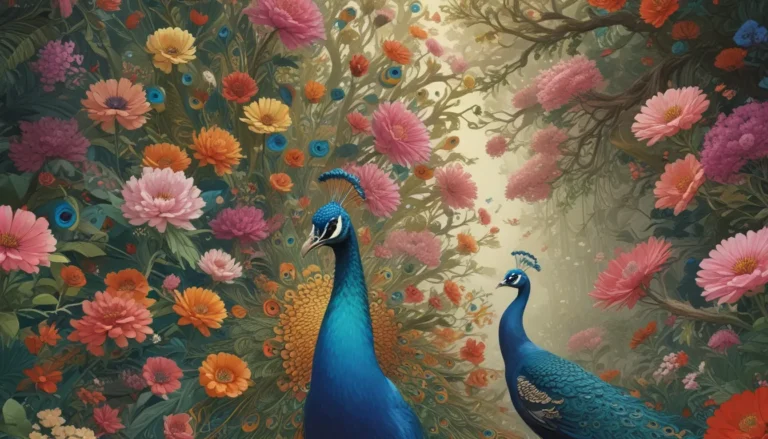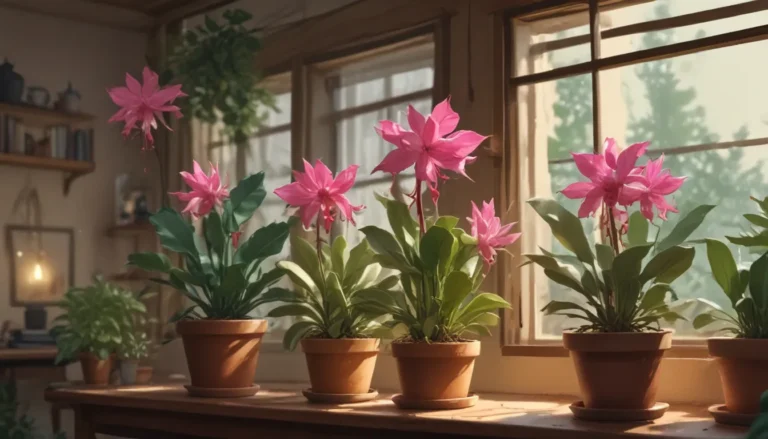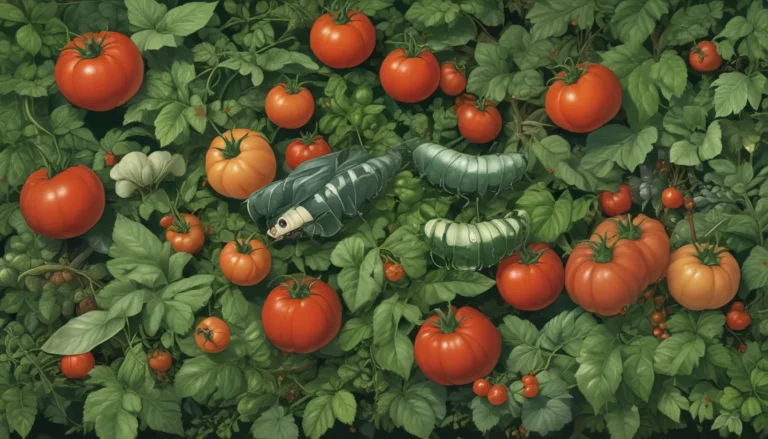Is Christmas Cactus Safe for Cats?

Just like any avid pet owner knows, the combination of houseplants and curious cats can sometimes lead to unexpected and even dangerous situations. With the holidays around the corner, the risk of mishaps involving festive plants like poinsettias, evergreens, and mistletoe increases.
One popular houseplant that often blooms during the holiday season is the Christmas cactus, also known as Schlumbergera spp. But is this beautiful plant safe for your feline friends? Let’s delve into the details to ensure your Christmas season is both merry and cat-safe.
What You’ll Learn
In this informative guide, we will cover the following essential topics:
- Is Christmas Cactus Toxic to Cats?
- Why Do Cats Eat Houseplants?
- Tips to Keep Cats Safe During the Holidays
Is Christmas Cactus Safe for Cats?
The good news is that according to the ASPCA, Christmas cactus is considered non-toxic to cats, dogs, and horses. While serious toxicity is not expected, mild symptoms like diarrhea, vomiting, and nausea may occur if your pet ingests any part of the plant.
However, it’s crucial to take precautions even with non-toxic plants like the Christmas cactus. If your cat consumes parts of the plant, you may observe symptoms like mild gastrointestinal distress. In most cases, these symptoms will resolve on their own, and you may need to withhold food for a brief period to allow your cat’s digestive system to recover.
While Christmas cactus is generally safe for cats, certain factors such as the cat’s age, health status, and the quantity of the plant ingested can impact the severity of the situation. Consulting a veterinarian is recommended if your cat shows prolonged or severe distress symptoms.
To ensure your cat’s safety, it’s essential to place the Christmas cactus out of reach and be cautious of any pesticides or chemicals that may be applied to the plant.
Why Do Cats Eat Houseplants?
Even though cats are obligate carnivores, they may show an interest in consuming grasses and houseplants. This behavior is believed to help cats rid themselves of internal parasites. Additionally, factors like curiosity, boredom, and playfulness can also lead your cat to munch on houseplants.
To prevent your cat from nibbling on plants like Christmas cactus, providing adequate enrichment and alternative toys can redirect their attention. Placing the plant in a location that is challenging for your cat to access can also be helpful.
Tips to Keep Cats Safe During the Holidays
During the holiday season, it’s crucial to be mindful of other potential hazards to your feline friends. While Christmas cactus may be safe, items like tinsel, ribbons, and small ornaments can pose dangers to your cat’s digestive system. Poinsettias, despite their reputation, are not toxic to pets. However, plants like amaryllis can be harmful if ingested.
To ensure a safe and festive holiday season for your cats, consider the following tips:
– Avoid placing toxic plants within reach of your pets.
– Keep small ornaments and decorations out of your cat’s reach.
– Provide ample alternative toys and enrichment activities for your cat.
– Monitor your cat’s behavior around holiday decor and houseplants.
By staying vigilant and prioritizing your pet’s safety, you can enjoy a wonderful holiday season without any pet-related mishaps.
Do you have any strategies for keeping your pets safe around houseplants during the holidays? Share your tips and experiences in the comments below.
Remember, while Christmas cactus may not be toxic to cats, it’s always best to consult a veterinarian if you suspect your pet has ingested something harmful.
For further insights into caring for Christmas cactus, explore these informative resources:
– How to Grow and Care for Christmas Cactus
– Tips for Blooming your Christmas Cactus
– Understanding the Hair-Like Roots on Christmas Cactus
With these tips, you can ensure a safe and joyous holiday season for both you and your feline companions. Stay informed, vigilant, and enjoy the festive season responsibly.
Please note that the Gardener’s Path team are not medical professionals, and this article is not intended as medical advice. Always consult a qualified veterinarian for advice on your pet’s health and safety.





